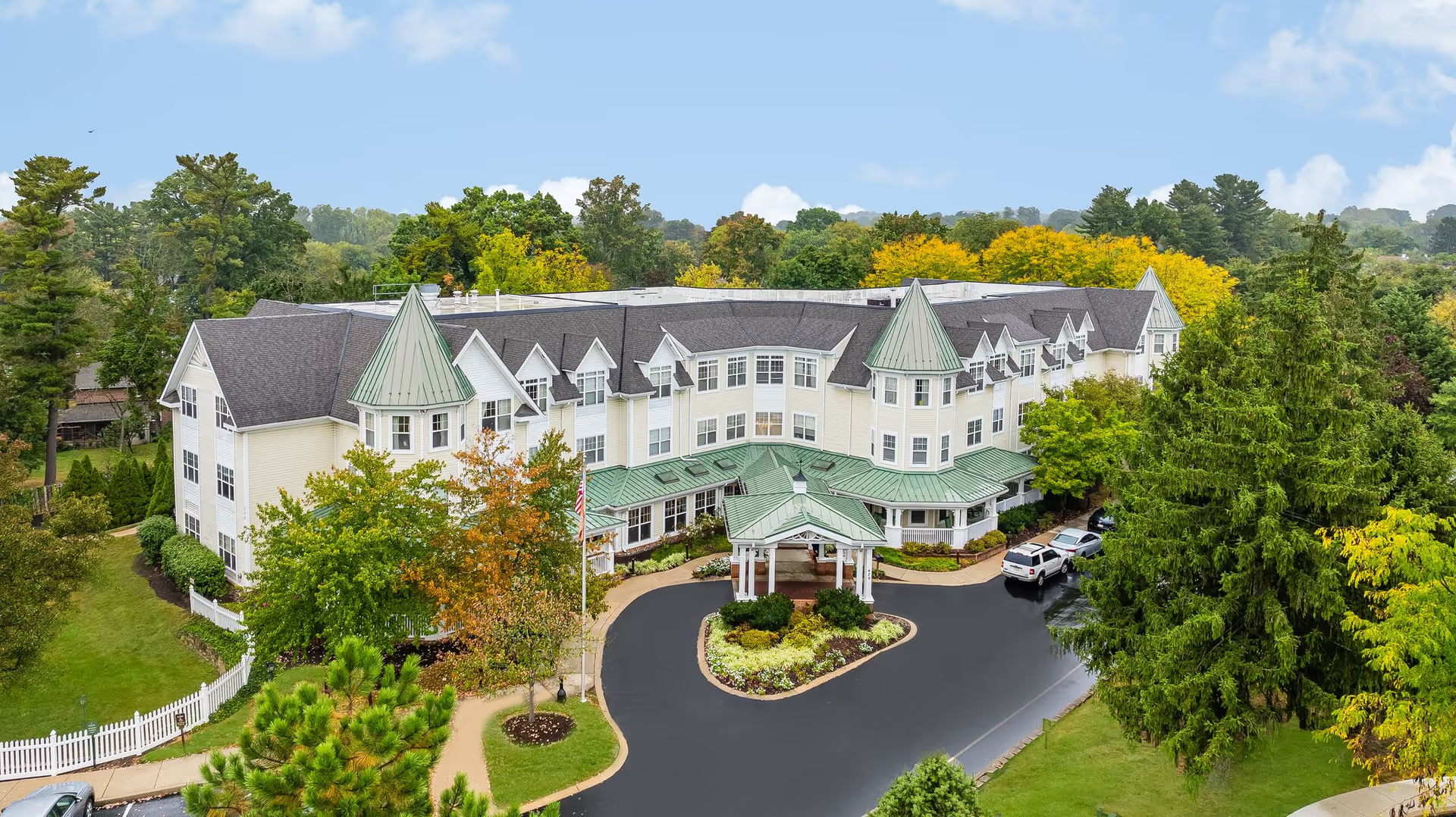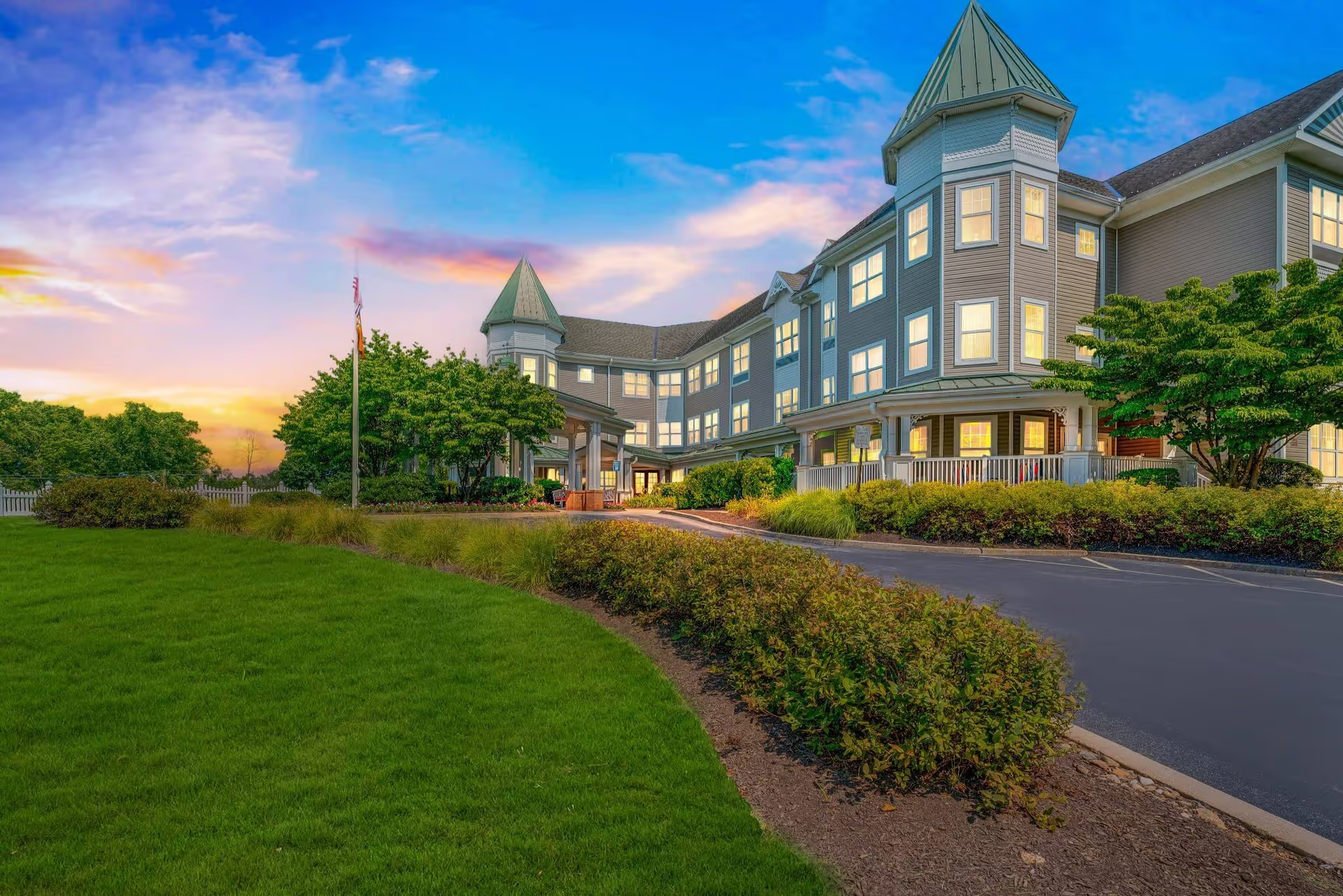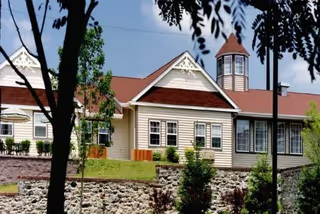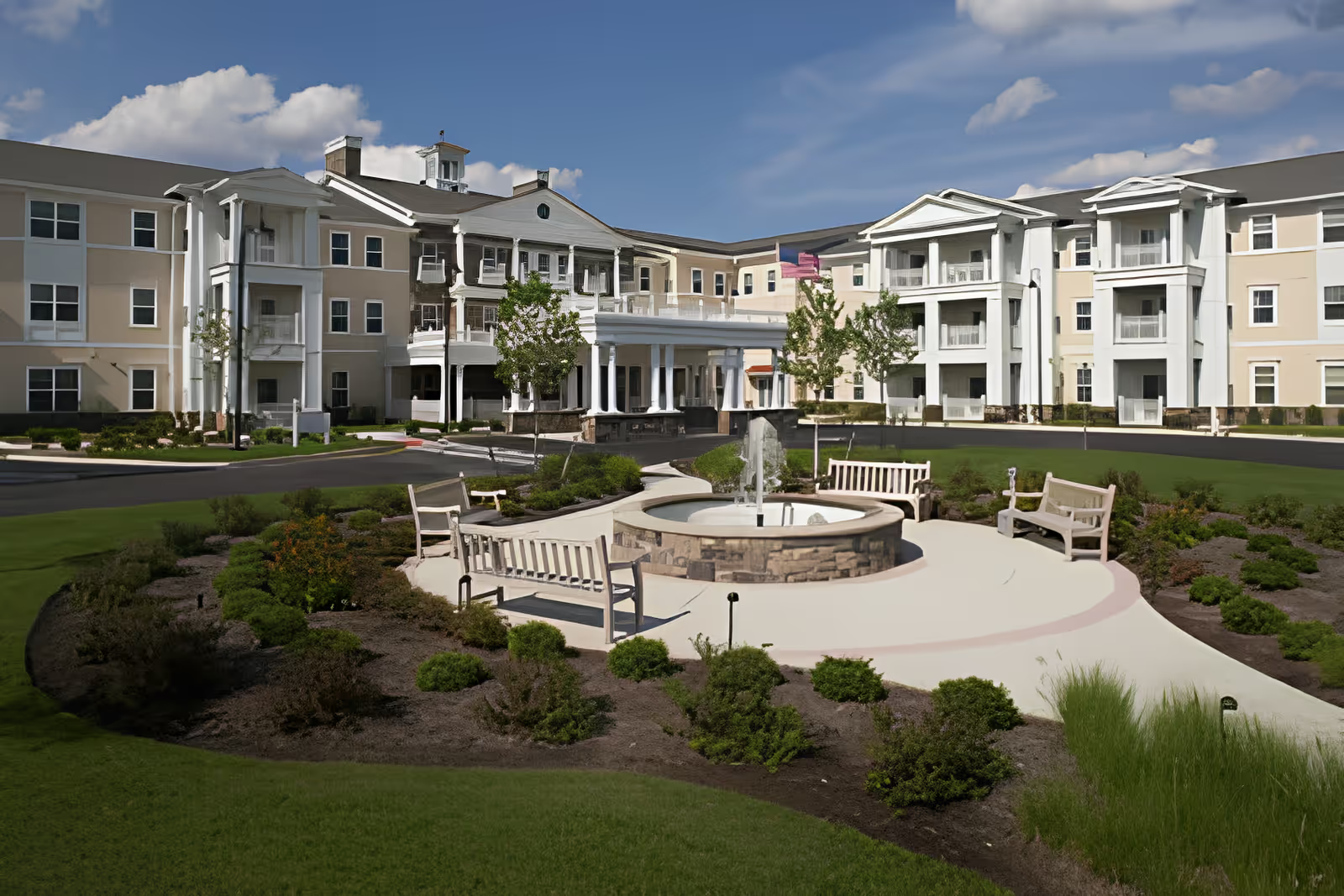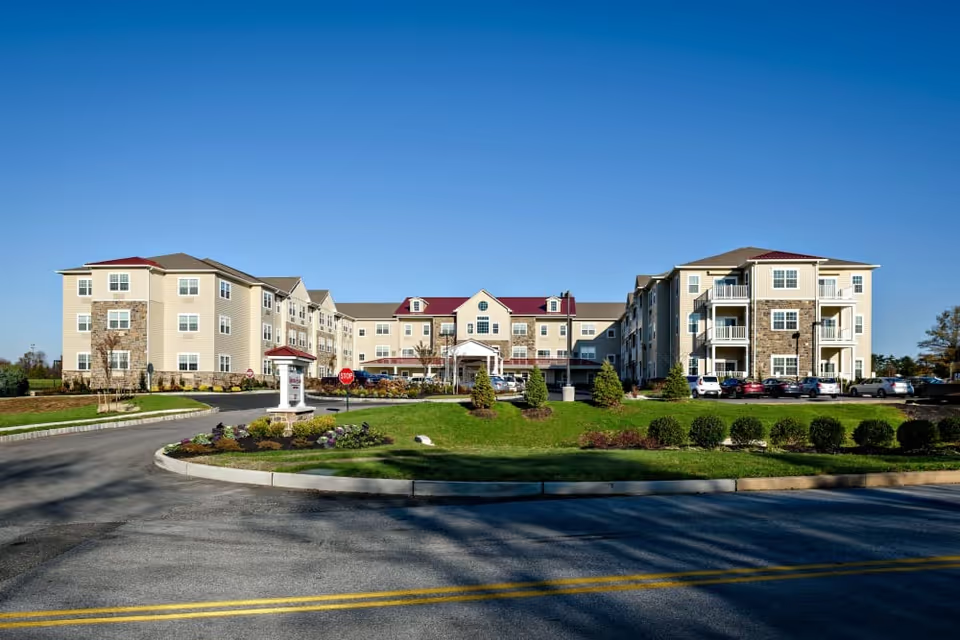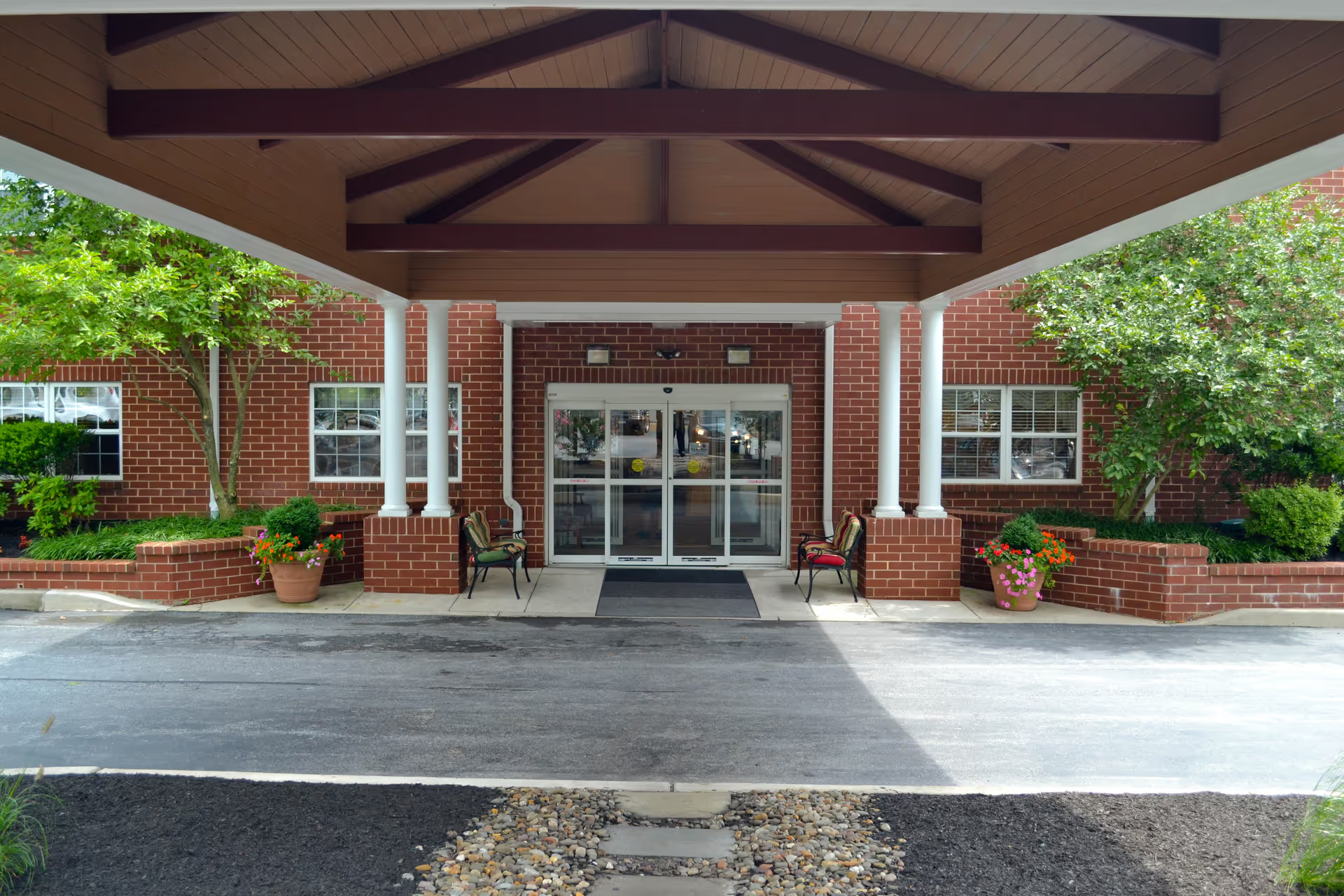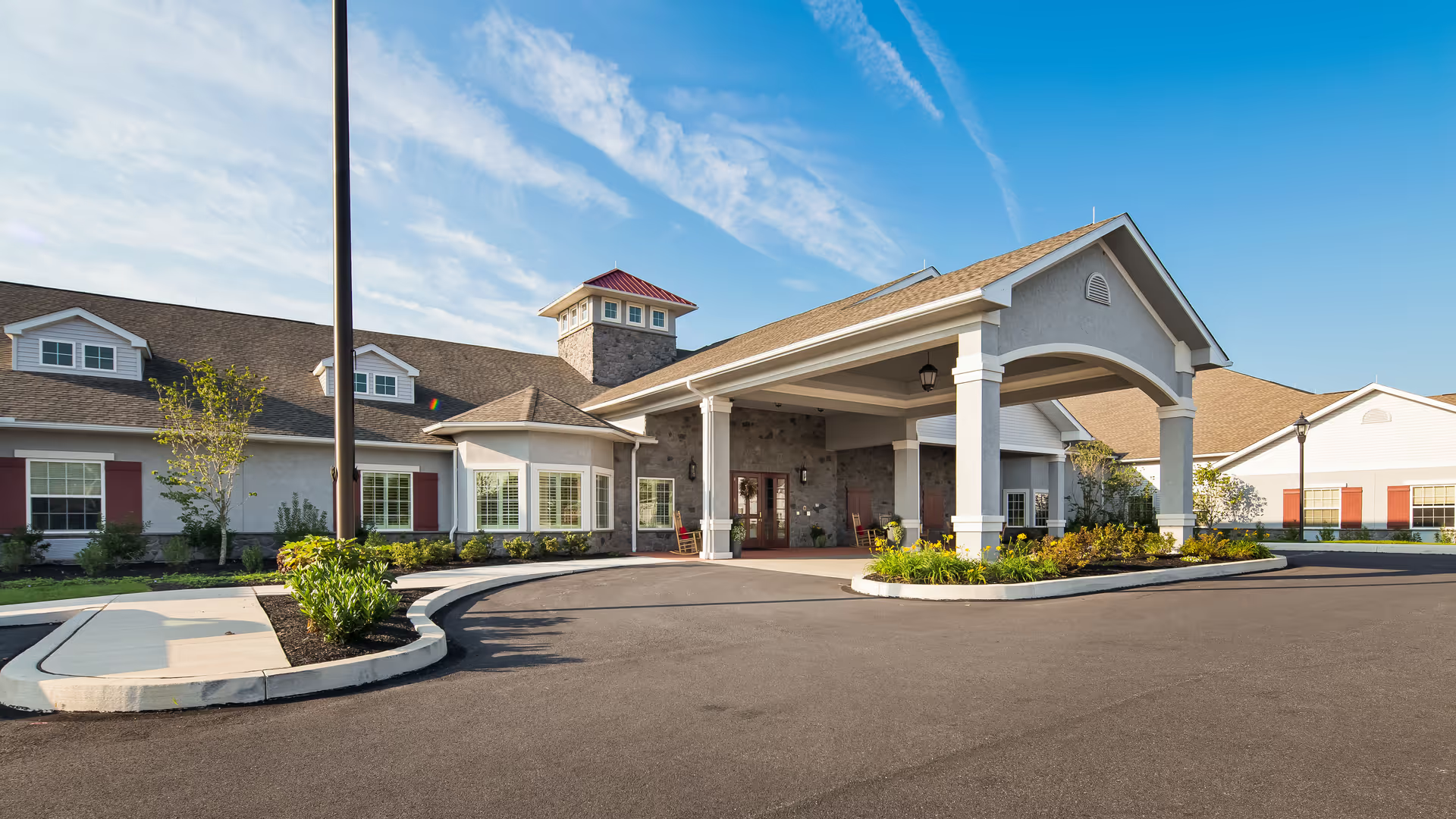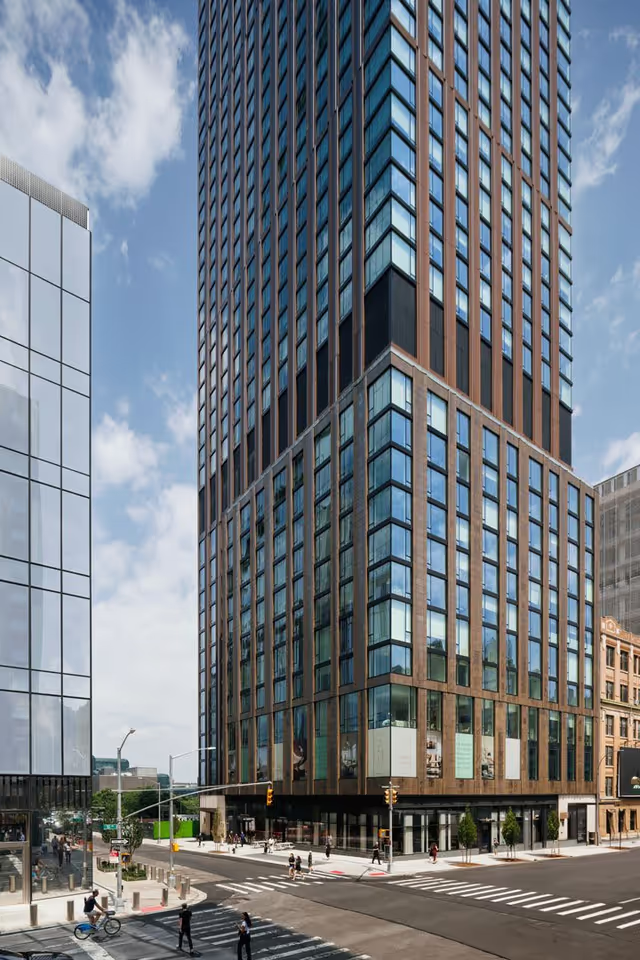Overall sentiment: Reviews of The Terrace at Chestnut Hill are highly mixed but trend positive on culture, staff warmth, the building and programming while raising repeated operational and care-quality concerns. Many families and residents praise the caring, personable staff, the consistent presence of a committed executive director (Lisa McDonough is frequently singled out), and a small, family-like community atmosphere. The facility’s historic mansion setting, well-maintained grounds, terrace and garden spaces are commonly lauded and create a homelike, attractive environment. Numerous reviews describe robust social programming—music, art, concerts, cocktail hours, outings, partnerships with local institutions such as Arcadia University—and many residents appear engaged and pleased with activities. Dining is often highlighted positively (linen service, varied menus, special touches) though reviewers also mention inconsistency at times. On balance, for many families the Terrace offers strong social engagement, good medication management, and a warm community that feels like good value relative to alternatives.
Care quality and staff: The most frequent praise concerns staff attitude and attentiveness: reviewers repeatedly call staff friendly, caring, compassionate and willing to go “above and beyond.” Nursing and personal care staff receive many positive remarks for knowing residents by name and providing dignified daily care. Several reviewers also note helpful administrative responsiveness and good communication from certain leaders. However, an important and recurring negative theme is staffing instability—high turnover, understaffing, and inconsistent night/weekend coverage—which directly contributed to adverse outcomes in some reports. Multiple reviews recount serious lapses: delayed response to falls, missed checks, delayed ER/family notification, wound or pressure ulcer concerns, incontinence left unaddressed, and at least a few allegations of neglectful incidents. These reports contrast sharply with other families’ experiences of excellent, attentive nursing care, indicating variability in staff performance and supervision.
Management and operations: Management is a polarizing topic. Many families praise proactive leadership and specific administrators who are responsive and visible; others report defensive or unresponsive managers, frequent administrative turnover, and poor follow-through on complaints. Several reviewers mentioned having to escalate issues to external agencies or submit complaints when internal communication failed. Operational problems tied to staffing—meal delivery inconsistencies, housekeeping lapses, laundry misdeliveries, and occasional supply issues—are described in multiple reviews. These operational gaps appear to be episodic but significant where they occur, undermining confidence for some families.
Facilities, apartments and safety: The property itself receives consistent positive comments: a beautifully renovated mansion with bright common areas, lovely outdoor spaces and a warm décor that many find inviting. That said, apartment size is a recurrent concern—some units described as small, claustrophobic, or with tiny kitchens/closets; memory care rooms are noted as particularly small and sometimes shared. Accessibility concerns (bathrooms and walker access) were highlighted in some reviews. Cleanliness reports are mixed: while many reviews call the community sparkling clean, several serious complaints detail soiled mattresses, urine smells, roaches, or rooms left dirty. This variability suggests uneven compliance with housekeeping protocols in some parts of the facility.
Dining and activities: Activities are one of the facility’s strengths; the calendar is busy with music, art, games, themed events, outings, and enrichment programs that many residents enjoy. That said, a subset of residents or families report that activity participation is low or that the programming lacks cognitive stimulation for some memory-care residents. Dining receives both praise and criticism: many reviewers describe tasty, well-presented meals and a special dining experience, while others report inconsistent food quality, reduced menu variety after chef changes, culturally mismatched offerings, or limited food availability on the memory unit. Dining space congestion and small dining rooms were noted in a few reports.
Memory care and clinical services: The Terrace offers separate memory care and multiple levels of service, and some reviewers praise the dementia team and memory-care activities. Contrasting reports raise concerns: memory care described as too small, shared rooms instead of private rooms, inconsistent staffing, and in some cases inadequate clinical attention. Clinical coordination (transport to hospitals, follow-up, specialty visits like podiatry) is reported as available by some families but lacking or inconsistent by others, especially during nights and weekends.
Value, cost and logistics: Opinions about cost vary. Many reviewers feel the Terrace represents good value—particularly compared with peers—citing inclusive services (meals, housekeeping, transportation) and an attractive price range mentioned in reviews. Others point to price increases, sizable community fees or add-ons and say costs are high for the level of care delivered. Practical logistics get mixed marks: shuttle and transportation services are appreciated, but some families experienced difficulty coordinating hospital transfers. The neighborhood and lack of safe walking paths were noted as limitations for residents who are mobile and wish to walk outside.
Patterns and recommendations: The dominant pattern in these reviews is a strong core of positive experiences centered on staff warmth, community atmosphere, attractive facility and active programming, paired with recurrent operational risks tied to staffing fluctuations and management inconsistency. When the staffing and leadership are stable and engaged, families report excellent care and a thriving social environment. When staffing drops or administrative follow-through weakens, reports of missed care, hygiene lapses and delayed incident communication emerge. Prospective residents and families should: tour multiple times (including meal times and activity periods), meet nursing and night-shift staff, ask about current staffing levels and turnover, request recent incident resolution examples, check memory-care room options for privacy and size, and confirm how hospital transfers and after-hours incidents are handled. Given the polarizing reports, The Terrace can be an excellent fit for many (warm staff, great setting, active programming), but families must perform due diligence focused on staffing stability and clinical oversight to ensure consistency of care.
